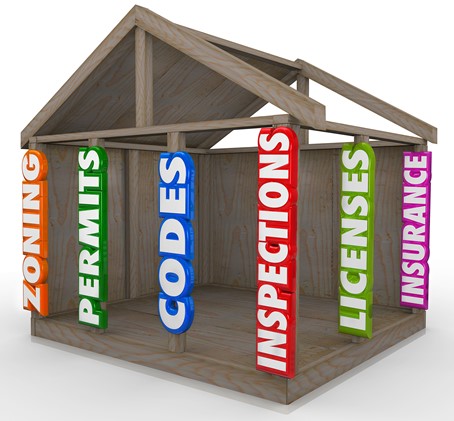Local Zoning 101
Local Zoning 101

The Pennsylvania Municipalities Planning Code Act of 1968 (MPC) is the law that allows municipalities (cities, boroughs, townships, and towns) in the Commonwealth of Pennsylvania to have police powers. This is the law in PA that allows municipalities to govern themselves, essentially allowing what we think of today as ‘small government’.
The MPC says that if a municipality wants to regulate the use and size standards of a property in their municipality, then they must have a joint or stand-alone Comprehensive Plan in place and a Zoning Ordinance must adhere to it. The MPC also states that if a municipality has a Zoning Ordinance, they must provide a Zoning Officer to enforce and interpret the Zoning Ordinance.
Zoning Ordinances
The rules a borough, city, or township (municipality) set up governing use and dimensional standards of properties.
- “Use” is how a property is used, for example: commercial, residential, or municipal.
- “Dimensional standards” establish the minimum size of lots, required setbacks, and impervious area allowances in each district.
- In land use, a setback is the minimum distance which a building or other structure must be set.
Zoning Districts
Zoning Districts are established to allow similar uses of a property near each other. Residential uses are sorted by density – how many dwellings are in a certain amount of area.
- Low density means lots are larger and the population is spread out over more land area.
- High density districts require smaller lots so that more people live in a smaller land area.
- Commercial uses and industrial uses are grouped together (respectively).
Some uses which are not residential but support residential districts are sprinkled throughout residential zoning districts. These uses are educational, religious, and municipal uses. Similarly, it is not unheard of to have a small commercial contingent in an otherwise residential neighborhood in urban municipalities.
Do you really need a zoning permit for everything?
In short, yes. In many municipalities, a zoning permit is required for most improvements and activities done on your property.
The need for permits is twofold and essentially allows a system of record-keeping and a transaction of information. By completing the permit application, the applicant is giving the zoning officer the information they need to make the determination of whether an improvement or activity is allowed. In addition, the permit fee pays for the zoning officer’s review and inspection time so that the other tax payers in the municipality are not bearing the expense of one homeowner wanting to make an improvement to their property.
Types of Permits
Improvements and uses listed in the zoning ordinance as allowable are permissible. Meaning, you need a permit to make those changes to the property. There are many different permit types offered in each municipality but only a few main ones which are mentioned specifically in the MPC for the purposes of permitting uses and dimensional requirements.
Zoning Permit – general permit required for permissible, ‘by-right’ uses and dimensional standards in the zoning district the property is located. Some municipalities use a ‘one size fits all’ application and fee while others may charge less for a small yard shed and use a different application then the application and fee of an inground pool.
Conditional Use – Process where an applicant wishes to use the property in a way that it is not zoned for. Conditional use applications will be reviewed for a recommendation through the municipality’s planning agency before being reviewed for approval or denial by the governing body of the municipality.
Special Exception - An application heard by the Zoning Hearing Board where the Applicant must prove that the proposed use is not by-right, but the use is similar enough in impact to the district, that it could be allowed in the zoning district.
Variance – An application heard by the Zoning Hearing Board where the Applicant must prove that a hardship is present if the application were to abide by the dimensional standards of the zoning ordinance.
Appeal – If an applicant does not feel that their zoning application was not determined in a fair manner, they can appeal the determination to the Zoning Hearing Board.
Conditional use applications, special exceptions, variances, and appeals are all done as semi-formal hearings, and are recorded for public record.
Zoning affects everyone in a community as it assures that neighborhoods have schools, churches, and parks. It is zoning that keeps the uses we don’t wish to affect our quality of life in a negative manner on the edges of the municipality. Call us today at 610-705-4500 or email info@cedarvilleeng.com to learn more about our zoning experience and the municipalities we serve.
By: Tracey Franey, Zoning & Building Code Officer
What can we do for you?
Address: CEDARVILLE Engineering Group, LLC 159 E. High Street, Suite 500 Pottstown, PA 19464 Phone: 610-705-4500 Fax: 610-705-4900 info@cedarvilleeng.com